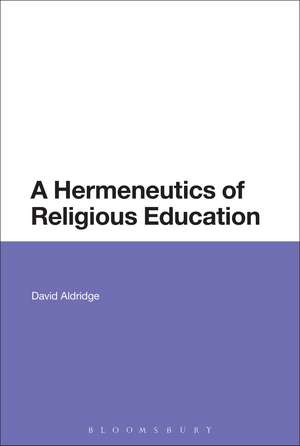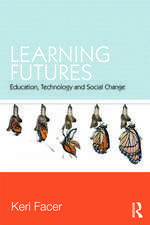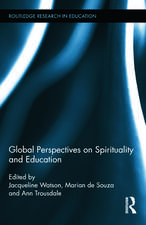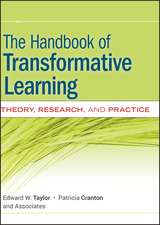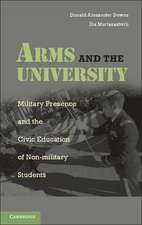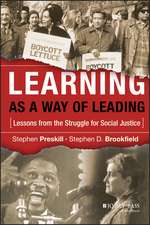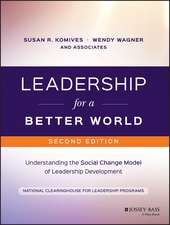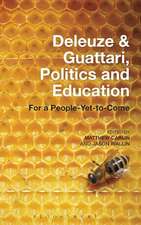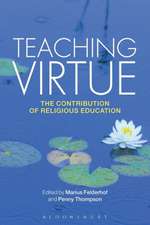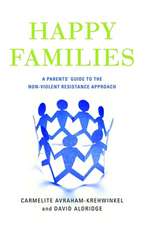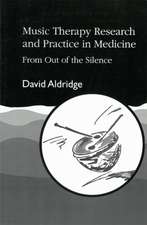A Hermeneutics of Religious Education
Autor Dr David Aldridgeen Limba Engleză Hardback – 21 oct 2015
| Toate formatele și edițiile | Preț | Express |
|---|---|---|
| Paperback (1) | 256.67 lei 6-8 săpt. | |
| Bloomsbury Publishing – 22 feb 2017 | 256.67 lei 6-8 săpt. | |
| Hardback (1) | 832.26 lei 6-8 săpt. | |
| Bloomsbury Publishing – 21 oct 2015 | 832.26 lei 6-8 săpt. |
Preț: 832.26 lei
Preț vechi: 1065.84 lei
-22% Nou
Puncte Express: 1248
Preț estimativ în valută:
159.25€ • 166.28$ • 131.50£
159.25€ • 166.28$ • 131.50£
Carte tipărită la comandă
Livrare economică 15-29 aprilie
Preluare comenzi: 021 569.72.76
Specificații
ISBN-13: 9781441114426
ISBN-10: 1441114424
Pagini: 232
Dimensiuni: 156 x 234 x 23 mm
Greutate: 0.52 kg
Editura: Bloomsbury Publishing
Colecția Bloomsbury Academic
Locul publicării:London, United Kingdom
ISBN-10: 1441114424
Pagini: 232
Dimensiuni: 156 x 234 x 23 mm
Greutate: 0.52 kg
Editura: Bloomsbury Publishing
Colecția Bloomsbury Academic
Locul publicării:London, United Kingdom
Caracteristici
Re-examines the nature and place of religious education in the education of young people
Notă biografică
David Aldridge is Reader in Education at Brunel University, UK.
Cuprins
IntroductionPart I: Hermeneutics, Education and Religion1. Religious Education - Museum or Temple?2. What is a 'philosophical hermeneutics'?3. Dialogue, Tradition and Truth4. Hermeneutics and Education5. Hermeneutics and ReligionPart II: Hermeneutics and Religious Education6. Aims and Subject Matter of Religious Education7. Critical Religious Education: A Hermeneutic InterventionAfterwordReferencesIndex
Recenzii
This book offers an excellent contribution to current debates in RE and beyond. It draws together and explores in depth a number of philosophical issues that have influenced RE, including phenomenology ... [and] offers a challenge to engage and to travel with the author and to question and engage with one's own perspective alongside those presented in the book. It is a book that should appear on the reading list of all those training to teach RE.
A critical exploration of an entirely new way of conceptualising religious education and learning within it. ... The book has [numerous] significant features ... However, I consider that the third feature, the theory of dialogue, is the book's most important contribution. ... In conclusion, there is much for the teacher to gain from this book ... It is certainly a challenging and rewarding one.
A thorough and convincing argument that phenomenological hermeneutics can be fruitfully employed to unlock fundamental and intractable questions within religious education and education more broadly. Lucid and engaging, the text is both thoroughly readable and meticulously researched. Aldridge draws upon a range of sources, particularly Gadamer and Heidegger, to show that philosophical hermeneutics provides a comprehensive reflection on the nature of understanding itself, thereby furnishing us with a novel approach to understanding the peculiarly complex world of religious education. Aldridge demonstrates why religious educators need to address their subject through the lens of understanding as such. The implications, however, go well beyond curriculum issues within religious education, cutting across debates within education and religion more generally. This is an excellent book that contributes many fresh insights to a vital and timely debate.
A critical exploration of an entirely new way of conceptualising religious education and learning within it. ... The book has [numerous] significant features ... However, I consider that the third feature, the theory of dialogue, is the book's most important contribution. ... In conclusion, there is much for the teacher to gain from this book ... It is certainly a challenging and rewarding one.
A thorough and convincing argument that phenomenological hermeneutics can be fruitfully employed to unlock fundamental and intractable questions within religious education and education more broadly. Lucid and engaging, the text is both thoroughly readable and meticulously researched. Aldridge draws upon a range of sources, particularly Gadamer and Heidegger, to show that philosophical hermeneutics provides a comprehensive reflection on the nature of understanding itself, thereby furnishing us with a novel approach to understanding the peculiarly complex world of religious education. Aldridge demonstrates why religious educators need to address their subject through the lens of understanding as such. The implications, however, go well beyond curriculum issues within religious education, cutting across debates within education and religion more generally. This is an excellent book that contributes many fresh insights to a vital and timely debate.
